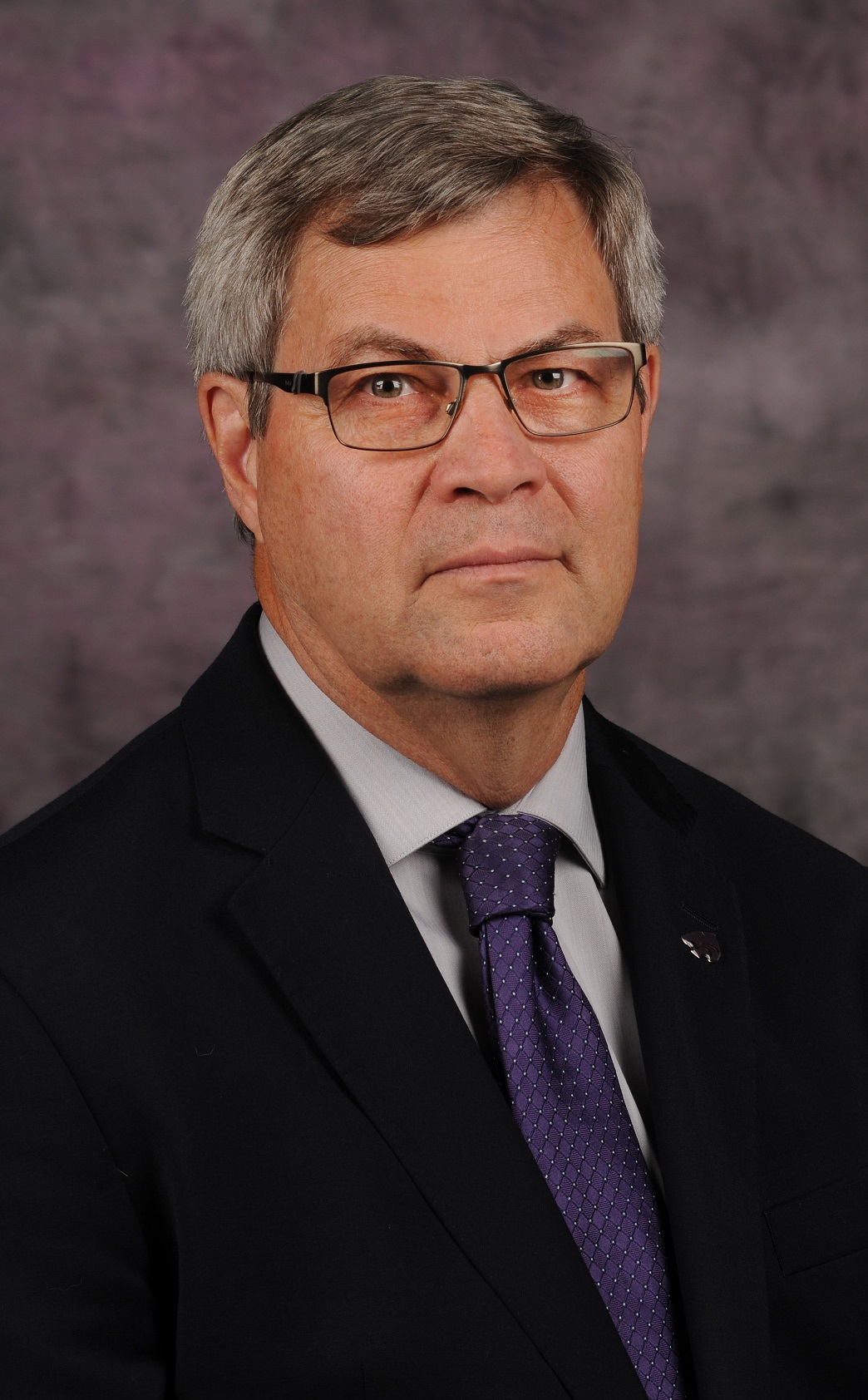Charles Rice, '77, Receives Alumni Achievement in the Sciences Award
By Tony Scott

Charles Rice is the 2024 Alumni Achievement in the Sciences Award recipient. (Photo: Dan Donnert, Kansas State University)
A distinguished professor at Kansas State University’s Department of Agronomy, Charles W. Rice, ’77, has conducted innovative research for decades in climate science, even being part of a UN team that received the 2007 Nobel Peace Prize, and it all began with an undergraduate class at NIU that ignited his passion for what would become his career.
As a professor, Rice specializes in soil microbiology, carbon cycling and climate change. He received the 2007 Nobel Peace Prize for his work with the United Nations’ Intergovernmental Panel on Climate Change, and his research has been supported by more than $90 million in grants from the USDA, the U.S. Department of Energy, the National Science Foundation and others.
It is because of this success and dedication that Rice is receiving the 2024 Alumni Achievement in the Sciences Award from the NIU Alumni Association.
Rice grew up in a subdivision outside the small rural town of Yorkville, Illinois, with two younger siblings – Diane and Mark. His father worked in a factory, and his mother worked as a cook at the Yorkville grade school.
Rice remembers being active in the local 4-H chapter.
“I did several different 4-H projects, including gardening, cooking and small engine repair,” he said.
Rice said he always enjoyed nature and the sciences as a youth.
“My parents were very encouraging even though they were not involved in the sciences,” he said. “They bought me a chemistry set and a microscope. I remember one experiment where my mom and I cut a hole in an eggshell, incubated the egg, and watched the embryo grow into a chick.”
Rice’s teachers were impactful even in his younger years.
“I had some very influential teachers,” he said. “My third- and fifth-grade teachers were very influential; we did several hands-on science projects. In high school, the biology teacher inspired me further in the sciences. I became a lab assistant for high school biology during my junior and senior years. I was also selected to be part of a small group to spend an extended weekend at the sand dunes in Michigan, where we studied the succession of plant communities from the beach to the climax forest.”
Rice started as a biology major at NIU but switched his major to geography, with an emphasis in natural environmental systems, after taking an honors course in water resources taught by Ken Bowden, who also served as his advisor.
“That course changed my career goals,” he said.
Rice said professor Steve Messenger inspired him in the field of soil science. Both professors encouraged him to go on to graduate school.
“I did an undergraduate research project and was a teaching assistant for the introductory soils lab course,” he said. “The summer between my junior and senior years, I did a summer internship at Argonne National Laboratory, where I did a project on surface mine reclamation.”
Following his graduation from NIU, Rice earned an M.S. in soil science in 1980 and a Ph.D. in soil microbiology in 1983, both from the University of Kentucky.
He has been a member of Kansas State University’s faculty since 1988.
“My geography degree from NIU prepared me to think globally and understand both human and natural systems in the context of global geography,” he said. “I took courses in soil, water, meteorology, and cartography, all of which prepared me for my current research program.”
While at NIU, Rice lived in Douglas Hall for the first three years. He remembers his floor being active in sports, including touch football and softball. He worked at the hall’s front desk on the night shift, either from midnight to 4 a.m. or 4 to 8 a.m. Rice enjoyed hanging out at Douglas, in the library or the coffee room at Davis Hall, or at Candlelight Inn off campus.
Douglas Hall is also where he met his wife, Sue (Broquist), ’76, a Rockford native. They got married before his senior year and moved into an off-campus apartment. The couple has a daughter, Sarah, who lives with her husband, Shea, and their four children in Overland Park, Kansas.
When asked about his legacy, Rice said he wants to make a positive impact on agricultural sustainability and the environment, as well as on the students he has mentored.
Rice is proud of being lauded by his alma mater.
“This award is very rewarding because it recognizes my dedication to the sciences and education,” he said. “I am honored to receive this award.”
